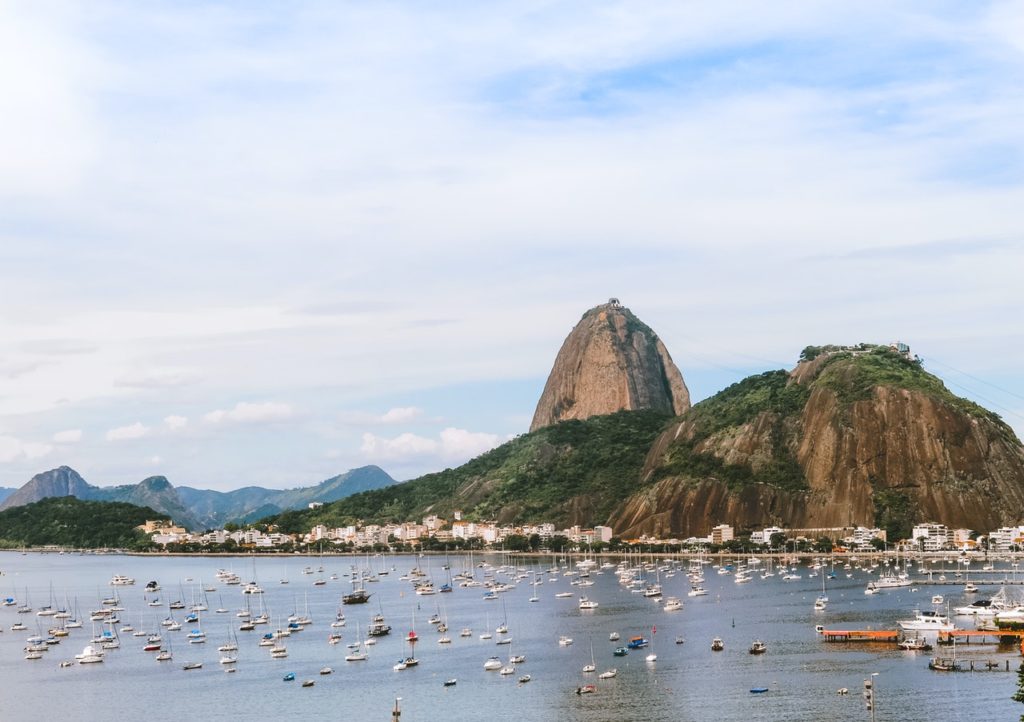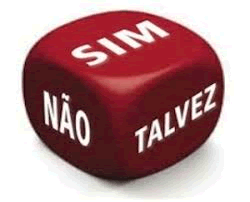You are probably wondering how to learn Brazilian Portuguese. But first, allow me to introduce myself to you. Hi! My name is Guillermo Morán, I’m Spanish and I work for the agency Intern Brazil! In this article, I am going to give you some tips in order for you to have some basic knowledge of Brazilian Portuguese.

Just to clarify, our goal is to help foreigners who want to go to Brazil without speaking a word in Portuguese. If you choose to do so, you can get a lot of tips on how to improve your Brazilian Portuguese skills. However, I am also going to list some different websites, authors and artists which could be worth it to take a look even though you already know some Portuguese!
First of all, I can understand that thinking of moving to a country in which you do not speak the language could be scary, but don´t worry! I am going to show you how easy and fun can be to start learning Portuguese! I myself was also once a foreigner who went to Brazil and did not speak one word in Portuguese. Even so I started to get used to it, based on just making an effort and with the help of Brazilian friends that I started making! With these tips, you will see how easy it can get when it comes to start speaking a more fluent Portuguese!
Firstly, I am going to explain two usual mistakes that people believe regarding Portuguese language in general. Then, I am going to list and describe some tips, especially for students who do not speak any word, so that they could have some help when they just get in Brazil. And finally, I am going to also give you some advice on where to continue learning the language, especially when it comes to understand what people are saying, with different cultural materials.
1. Mistakes that people believe regarding Brazilian Portuguese
Many people think about strategies on how to learn Brazilian Portuguese. The truth is that there is no right answer. You will have to read this post and see which one fits you better. However, it is true that people have many beliefs that are not true. We will disclose 2 so you can get better at Portuguese.
Mistake # 1 – You can travel to Brazil only speaking English
One usual mistake is thinking that you could travel and live anywhere in the world speaking English. It is important to understand that English is not the main or second language of every country, even though it is true that it is the international language for business and other purposes. That means, and I can tell this from first hand, that Brazil is not a country in which people speak English fluently. It is true that high class Brazilians normally know how to speak fluent English, but when it comes to living there and mixing with society, you are going to see by yourself how society does not speak a fluent English, or even don´t speak it at all!
Besides, I remember when I was in university in São Paulo, most advertisements for language lessons were for Spanish and French ones, but not so many to learn English. I must admit that at first that kind of surprised me!
That´s why everyone should always try to learn the native language of a country when deciding to work, study or live in it. It is true that in Brazil is necessary to learn Portuguese. It will help you making friends and getting to know society in general. They will truly appreciate the fact of you learning their language.
Mistake # 2 – Brazilian Portuguese and Portuguese from Portugal are the same
Another thing that people who does not speak Portuguese do not consider sometimes, is the huge difference that exists between Brazilian Portuguese and the one from Portugal. Obviously, if you learn Portuguese in Brazil, Portuguese society is going to understand you, same as for example a Spaniard going to Colombia. But it is true that, apart from their accent which is extremely different, there are some words and expressions which also change. I realized that myself after I learned Brazilian Portuguese. I called or sent messages to Portuguese friends, and many times they were saying things like “we can see you have learned Portuguese in Brazil!”.
2. Force yourself to think and speak in Brazilian Portuguese
So, after leaving this short introduction, what should I know before going to Brazil regarding the language? As I said before, my way of learning was completely self-taught: I never received any help apart from the one my own friends and university teachers gave me. In my personal opinion, one of the best ways to start learning a new language, is to just try to talk it even though you can only say 2 out of 7 words you want to say. Use your hands, sounds, or whatever it takes, so that your friends will tell you the word that you are searching for. Like that, my experience is that your brain automatically “absorbs” that word and never forgets it.
It is true that, as in any other language, we have the “official language” which is the one you learn in an academy for example, and then the “colloquial language”. In the case of Brazil, it is true that the colloquial one is massively used. I remember when I was studying and reading texts, there were many words I did not understand at all because they are never used in a normal conversation, as well as some verbal times which are never used informally.
3. How to Learn Brazilian Portuguese expressions to get around
I am going to list a few expressions here and words which I am sure you are going to need your first days in this country, regardless the city you are going to live in, so that at least you could ask or answer to basic things. In case you talk Spanish as your native language or you have already learned it, you are going to see how easy it is going to be for you to remember these expressions:
- Sim, Não, Tal vez: Yes, No, Maybe

- Por favor: Please

- Com licença: Excuse me. They use it for example when they want to pass through and there are many people in between. In the street, people usually say directly licença, skipping the com.
- Oi, tudo bem?: Hi, How are you? This is probably going to be your most used expression. As you can see, interrogation marks are written as in English (just one at the end). Apart from Oi, you can also say Hola as Hi (like in Spanish), or also depending on the time, you can say Bom dia (Good morning), Boa tarde (Good afternoon) or Boa noite (Good night).
- Meu nome é… Prazer!: My name is… Nice to meet you! This is a perfect expression to use when you are being introduce to new people. In case they are the ones who tell you this, you could answer O prazer é meu!, which means it´s my pleasure or nice to meet you too!
- Tchau Tchau!: Probably one of the easiest ones, it is an informal way of saying goodbye to a close friend. Another more informal way to say it is Até!, which comes from Até amanha!, that means See you tomorrow.
- Cadê o…? / Onde fica…?: Both of them means Where is…?, but the first one is more informal and it is probably the one you will hear in the street. For example, Cadê o supermercado? means Where is the supermarket?
- Você conhece…?: It literally means Do you know…?
- Como vou até…?: It means How can I get to…? It is normally used when you are asking for directions, for example Como vou até o supermercado? would mean How can I get to the supermarket?
- (Eu) falo só um pouquinho de português: This is one of the most useful expressions for your first days in Brazil. It literally means I only speak a little bit of Portuguese. The Eu means I, and in Portuguese, as well as in Spanish and other languages, it could be skipped and just use the verb directly.
- Você pode falar mais devagar, por favor?: Can you speak more slowly, please? As the last one, it could be useful for your first days, as it is true that Brazilian society speaks very fast and normally, they have a thick accent which can be difficult to understand at first.
- Quanto custa (isso)?: How much does it cost? The isso could be use if you are for example pointing to something you want to know the prize of (it is like a “this”). In case for example you are talking about a shirt with the seller, you would just say Quanto custa, as the seller would already understand that you are talking about that concrete shirt.
- Como se diz XXX em português?: How do you say XXX in Portuguese? This is probably the expression that you are going to use the most in general, at least for the first weeks.
- Beleza: This is one of the words you are most going to hear everywhere you go in the country. It literally means beauty, but they use it in many different contexts. One could be to say How are you like instead of Oi, tudo bem?, they would say Oi, beleza?
It can also mean “perfect” like you tell someone some information they need to remember and they will answer you beleza as in “understood”. Also, you can use it when telling that same information as an interrogative, like “understood?”.
- Valeu: With the word Beleza, I would say they are two of the most used words in the street. Valeu could also mean many things, but the normal way of using it is as thank you. These two words are really informal, so it I recommend you only using them in the street or with close friends.
4. Brazilian people are very warm and welcoming
In general, Brazilian society is really sociable and openminded, and that is why I can assure you it is really easy to go partying and come back home with loads of new friends! Actually, and from my own experience, when you say you are a foreigner, they will be more interested in you and your history. And that is how you probably are going to start learning Portuguese, just talking and listening to them. Remember, always trying not to speak in your language or in English, using your hands or sounds if needed.
I must admit that there are some aspects which unfortunately you cannot learn in the streets: grammar and how to write. It is true that for example Brazilians almost never used the subjunctive, but when it comes to future, past, conjugations… That is why it could be helpful to have a teacher or a website where you can learn all these things which would take a lot of your time to learn in any other way.
I wish these tips have been useful for you and I hope you are going to use them and, above all, that they are going to be useful for you, at least your first days! And please, if you have any doubts or inquiries, do not hesitate contacting any member of our organisation! My email is [email protected]
Now, I am going to list some different medias that you can use to improve your Brazilian Portuguese skills. From beginners to advanced students, you will get a lot of useful information from this article.
5. Use Podcasts to learn Brazilian Portuguese
They are a useful tool when it comes to understanding different accents in Brazil, as well as training you ear to the language itself. There are a lot of them available in platforms like Spotify where you can also find them depending on your interests! Here I am going to leave you two independent platforms in which you can listen to everything for free. Both of them have their podcasts divided in categories as well, so you can choose regarding your interests! We separeted 2 Podcasts for you on How to Learn Brazilian Portuguese.
They are have usually advertisements, so you can train your ear in a formal and clear Brazilian Portuguese!
6. How to Learn Brazilian Portuguese by watching series and movies.
Have you thought about watching series and movies in Brazilian Portuguese? This was the source that I most used in order to improve and develop my Portuguese. I remember that I wanted to learn the most colloquial words and expressions (in Portuguese it is called gíria), so I watched a series based on a prison in São Paulo, in which most of the characters lived in favelas.
Irmandade
This series is called Irmandade (Brotherhood) and it is in Netflix. It has only one season, and I can´t wait for them to release the next one! It is based on a criminal gang inside one of the most dangerous prisons in Brazil, and they have confidents outside prison living in favelas. I genuinely learned a lot of colloquial words and expressions from this series, and I remember how surprised were my friends when I used them.
Irmandade’s trailer
Brazilian series – 3%
Another series which got actually really famous that I strongly recommend is 3%. It is based on a dystopia similar to the Hunger Games, in which the Earth is basically destroyed, and there is another place in which only a percentage of people can live, where the life expectancy is almost infinite. Each year, every teenager of 21 years can present to a “test” based on a lot of different events, from which only 3% will be chosen to live there.
3% trailer
Cidade de Deus – City of God
Regarding films, even though is probably the most cliché one when it comes to Brazilian cinema, Cidade de Deus (God´s City) is a classic. It explains the story of some characters who live in a favela and what does it mean to live there.
Cidade de Deus – City of God’s Trailer
Tropa de Elite I and Tropa de Elite II
Also, another two good films are Tropa de Elite I and II, in which they tell the struggle between the Police and the favelas from both perspectives. The main character of those films is Wagner Moura. Don´t you recognize his name? Pablo Escobar in the Netflix series Narcos!
Tropa de Elite I – Trailer
Tropa de Elite II – Trailer
What better way on how to Learn Brazilian Portuguese then by watching movies and series? Use technology at your favor.
7. How to Learn Brazilian Portuguese by listening to Music
One can argue that is impossible to learn it by listening to music they don’t understand. How to Learn Brazilian Portuguese by listening to music? Being similar to podcasts, it is true that, as in any other language, is much more difficult to understand the lyrics of a song, than what it is being said in a podcast. But even though at first probably you are not going to understand a lot, just listening to Brazilian music is amazing! Unfortunately, Brazilian music is not known worldwide, but I strongly recommend appreciating its beauty! Some of the most popular genres in Brazil are:
Brazilian Funk
Funk, the most popular one among young people. It could be considered the “Reggaeton of Brazil”, as it is what you will listen in every club or street party. It has kind of a similar rhythm to Reggaeton, and it is really nice for dancing! Even so, I have to warn you that it seems Brazilian people know how to dance it just by being Brazilian! It will be difficult at first to follow their lead!
One of the most known artists is called Kevin O Chris, with songs like Evoluiu (that can be seen in the video below), which I am sure you will hear everywhere!
Brazilian Samba
Samba, the one everyone knows. The Brazilian dance, amazing to watch, difficult to do. Some of the most known artists are Arlindo Cruz or Revelaçao. I also would recommend just watching in YouTube people dancing samba. I am sure you will be in love and start taking samba lessons the moment you land in Brazil! From Arlindo, one of the most popular songs is called Meu Lugar.
Brazilian Rock
Regarding Rock, I would recommend Titâs or Legiao Urbana. They are really known in the country.
Brazilian Reggae
Reggae has a strong culture in Brazil, especially in the North. In states like Bahia, most of Brazilians living there are Afros, as they come from slavery of the early colonization, and they have strong African roots. Most of the Reggae culture comes from this side of the country. Some examples could be Cidade Negra or Chimarruts. I really love Reggae and one of my favorite songs is Pensamento, from Cidade Negra.
Brazilian Forró
Another typical dance from Brazil is the Forró. It is not as known as Samba worldwide, but it is also amazing and difficult to dance, and in my opinion it has quite cool rhythm. Some artists are Armandinho, Luiz Gonzaga, or Zé Ramalho. One funny thing about Forró is its rumors about its name. The legend says that foreigners used to promote dances and it was “For All”. Since Brazilians didn’t know how to pronounce it, the dances were called “Forró” and the style was created.
8. How to learn Brazilian Portuguese using websites and apps
Regarding this matter, and even though I did not get to use them, it is true that learning the basics of a language before going could help as well. If I had to recommend one, it would be Duolingo, as I am currently learning another language from it and I am really happy with the app.
You can actually download and use it for free from your computer or smartphone. Besides, it is aware of typical doubts and questions students usually have for each language, so that it gets really dynamic and easy to use. Another one people told me it is good is Babbel, but the problem with this one is that only the first lesson is free.
9. Newspapers
As I studied International Relations, once I could defend myself in Portuguese and I got into Brazilian politics, I started looking up some different newspapers every day to understand what was going on in the country I was living. It is true that, as Brazil is so big, newspapers are usually regional on the different states, so if you already know where you want to go or where you are actually going in Brazil, I recommend you to look up for newspapers from the State you are going to live in.
Folha de São Paulo
If I had to recommend one, and as I was living in Sao Paulo, it would be Folha de Sao Paulo (https://www.folha.uol.com.br/). I had it downloaded in my mobile phone, and I could choose notifications on news from some specific aspect (politics, economy, sports…). I actually learned a lot from politics, economy and society from this newspaper, as well as some technique vocabulary.
You can find it in Google Play (https://play.google.com/store/apps/details?id=br.com.folha.app&gl=ES).
You can visit other news websites as well. As you know from reading this article, there are many different ways on how to learn Brazilian Portuguese. Reading news is good because it makes you acquainted to the local news and you improve your reading skills.
10. Brazilian Literature
Even though you could consider at first literature is the less attractive way, it is true that if you like reading, you can learn a lot (specially how to write and new words) from Brazilian authors and culture. Here I am going to list some of the most known authors who I strongly recommend in case you have the time and the energy! Even though you feel not confident enough to read them in Portuguese, I even recommend to read them in your native language or in English, as they are really worth it to make the effort.
- Clarice Lispector (1920-1977): Ukrainian woman from Jewish family who had to escape from the USSR. It is characterised by the thourough explanation and description of the inner self of her characters. Two of her most known novels are Laços de familia and Felicidade clandestina.
- Machado de Assis (2839-1908): One of the founders of Brazilian literature. Mostly everyone in the country at least has heart from him. Two of his most known books are Quincas Barba and Dom Casmurro.
- Jorge Amado (1912-2001): One of the most controversial authors, as he is always being criticised and acclaimed at the same time. He´s known for the humour he uses in his novels, and he describes the different struggles and situations from his native state, Bahia, concretely from the capital (Salvador de Bahia). His most known novel, which actually was transferred to television, was Dona Flor and her two husbands.
- Paulo Leminski (1944-1989): If you like Reading poems, he is one of the most known authors. Some of his are Bem no Fondo or M de Memória. Also, he wrote some novels like his best seller Metamorfose.
- Paulo Coelho (1947-): Probably the most known author internationally speaking. He is really known for his poems, as well as by his novels, in which we have for example The Alchemist, translated to more than 80 languages, and The Pilgrimage.
Are you starting your career? Have you thought about interning abroad in Brazil?
Please fill in our application form to get started.



